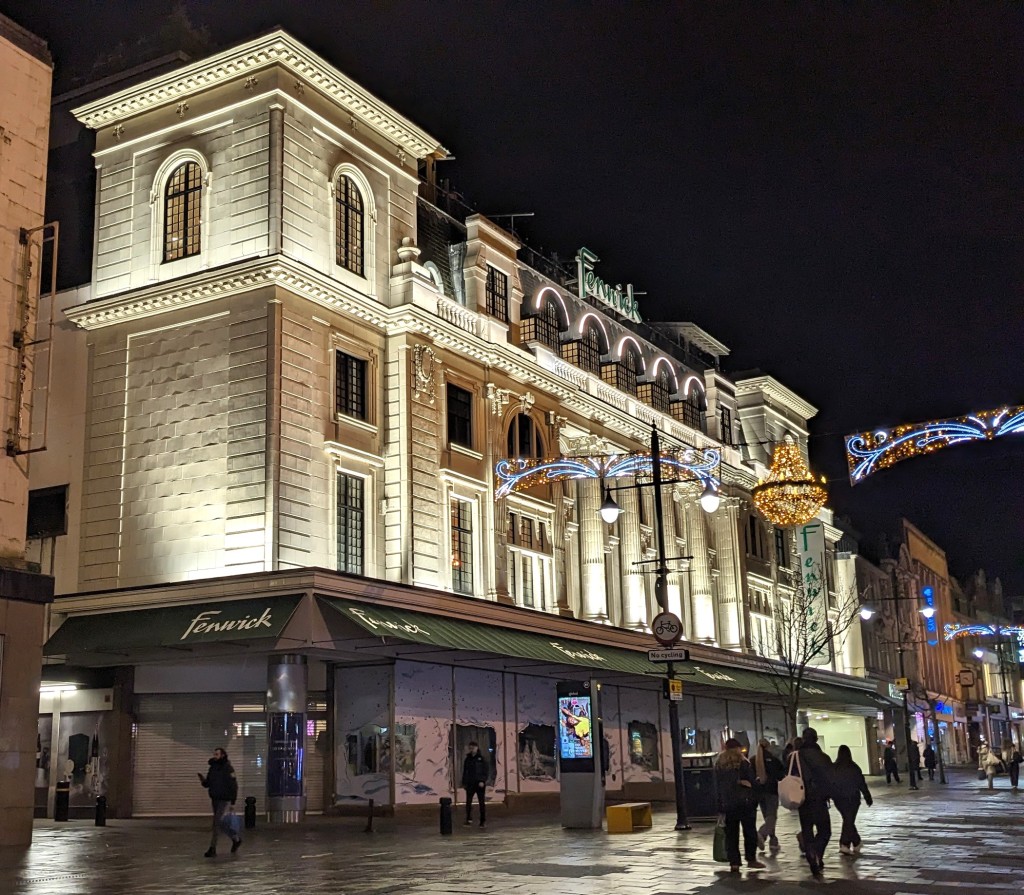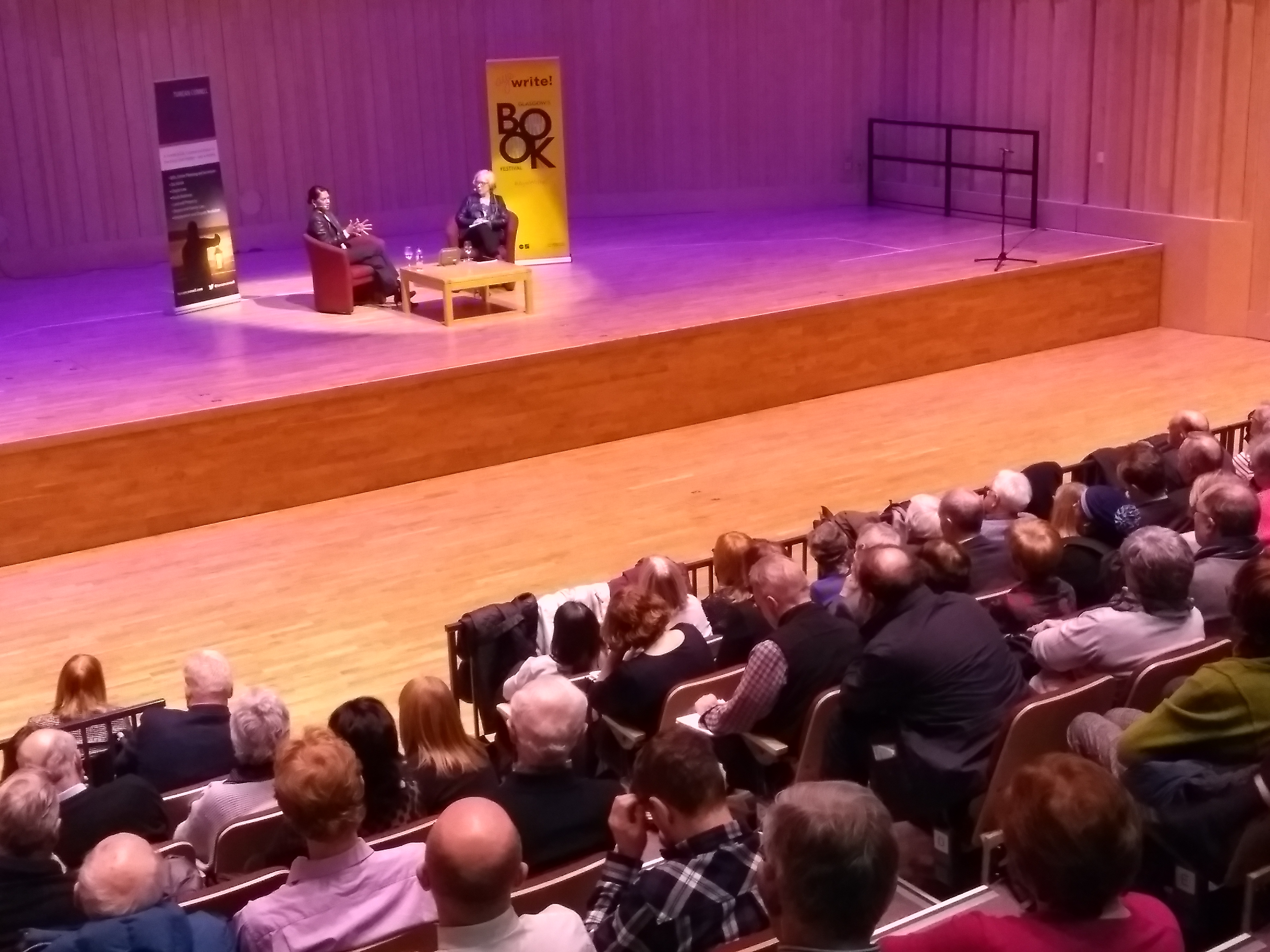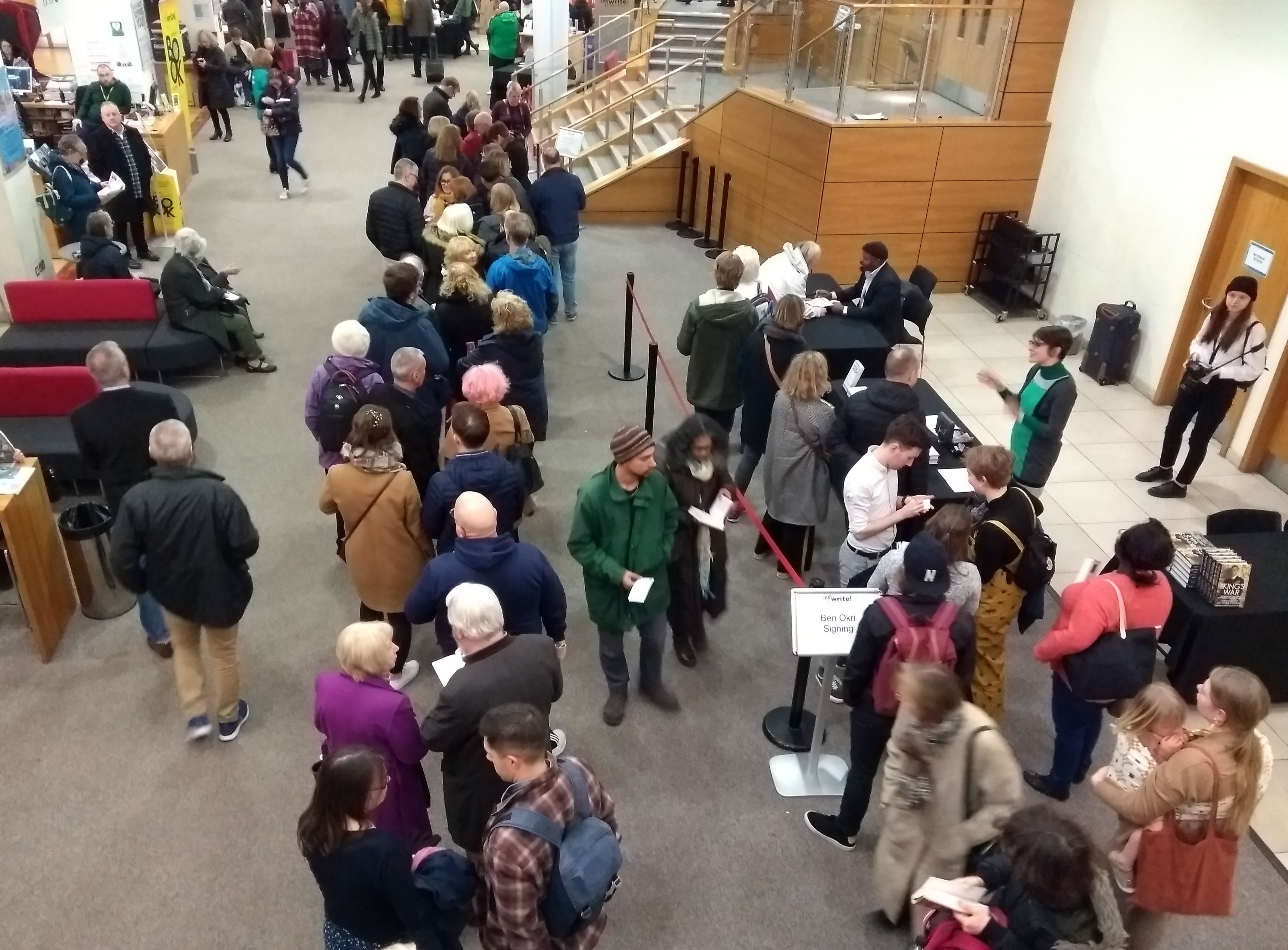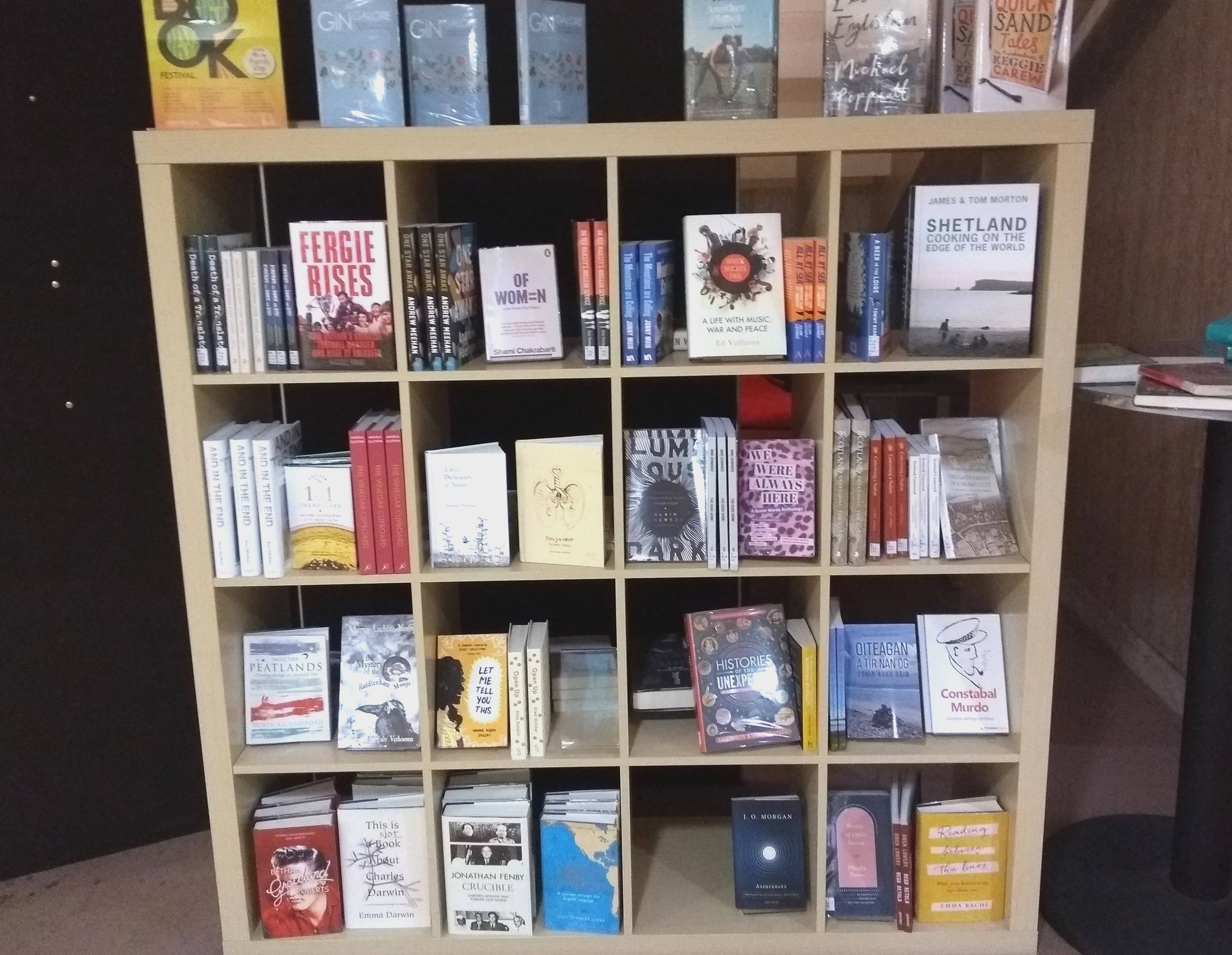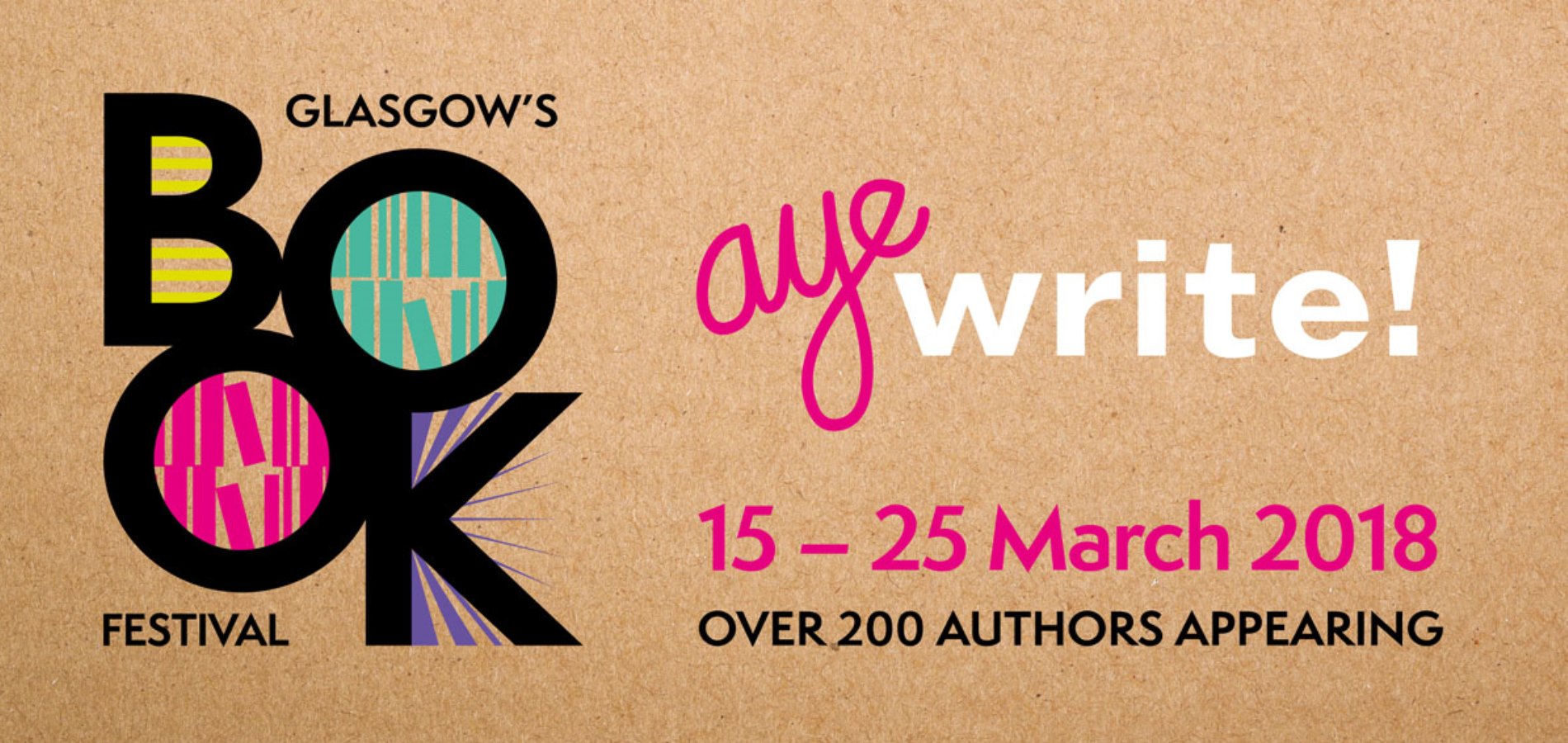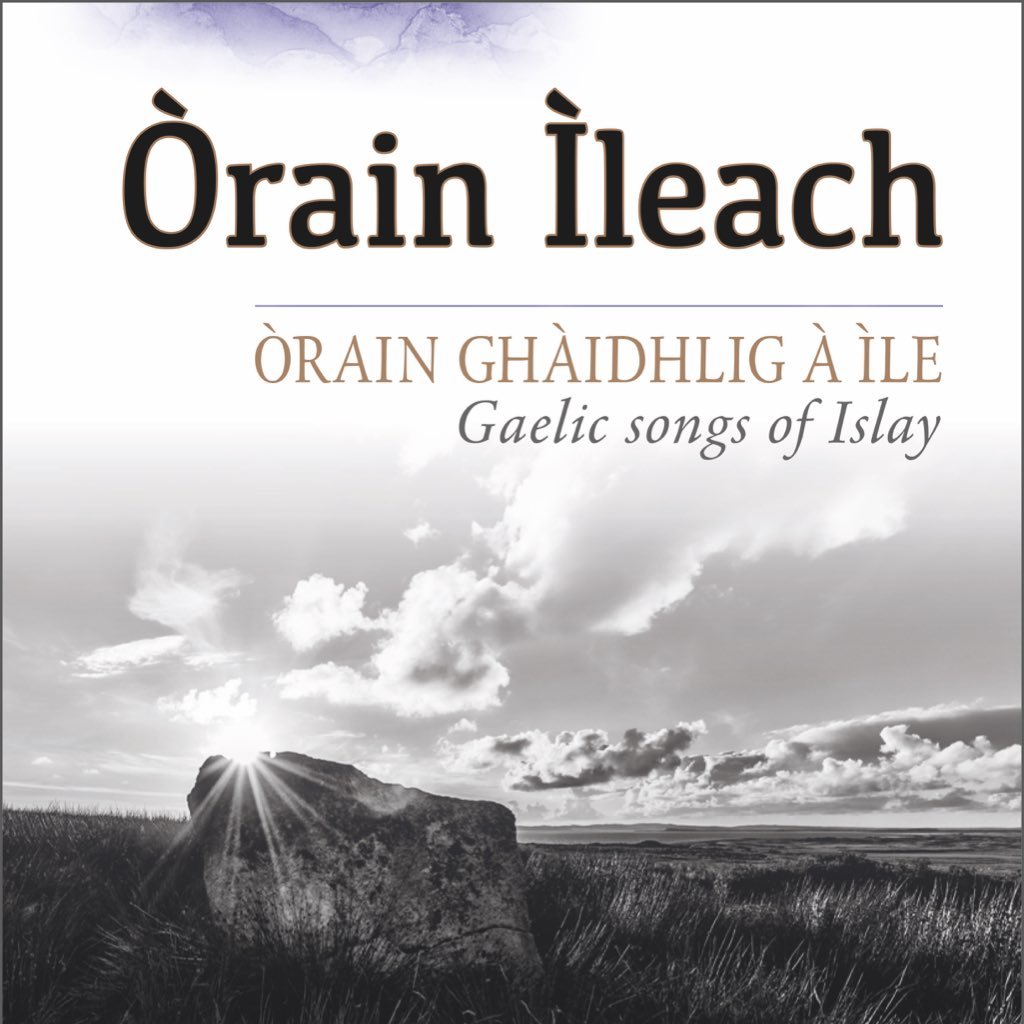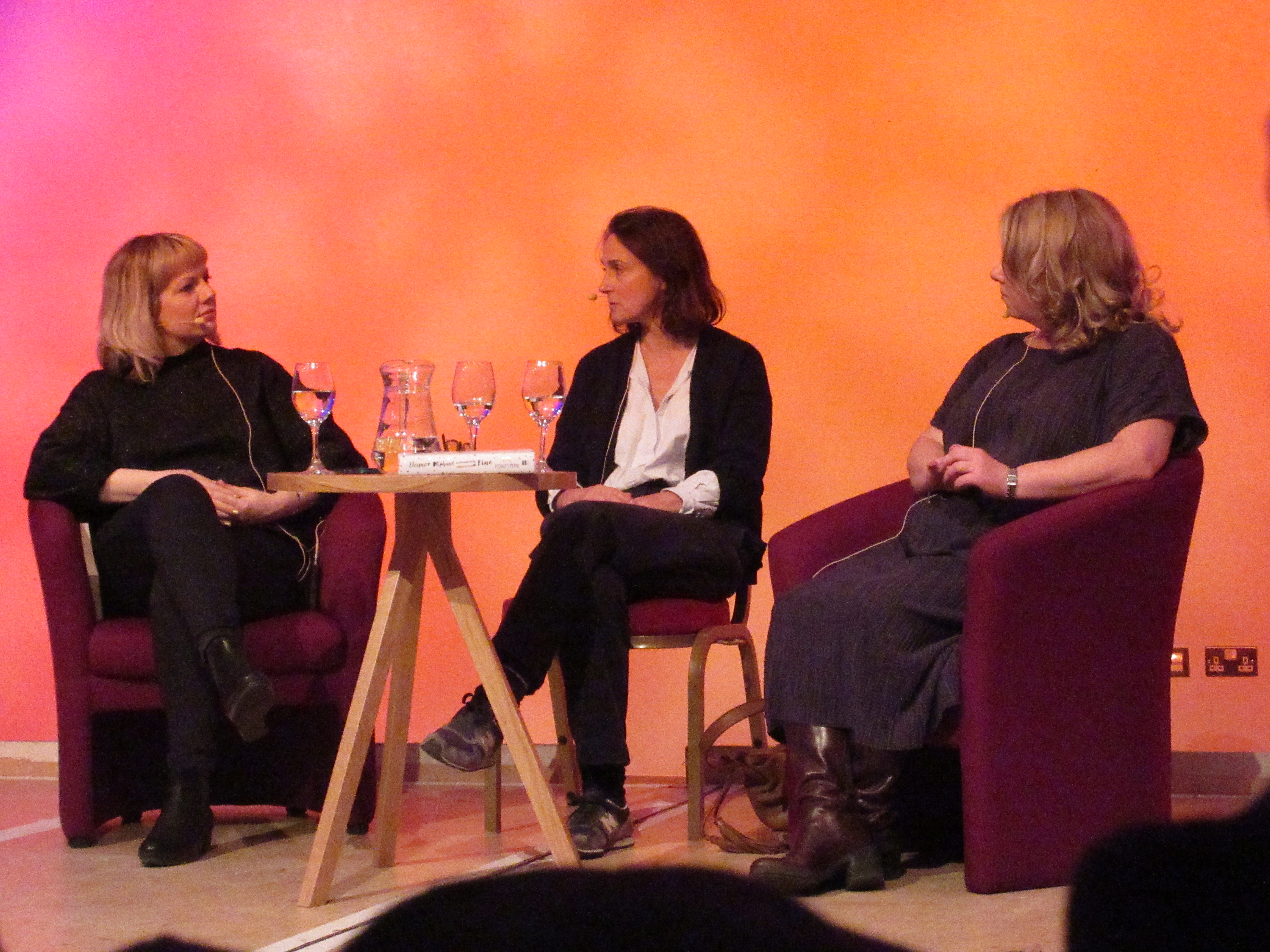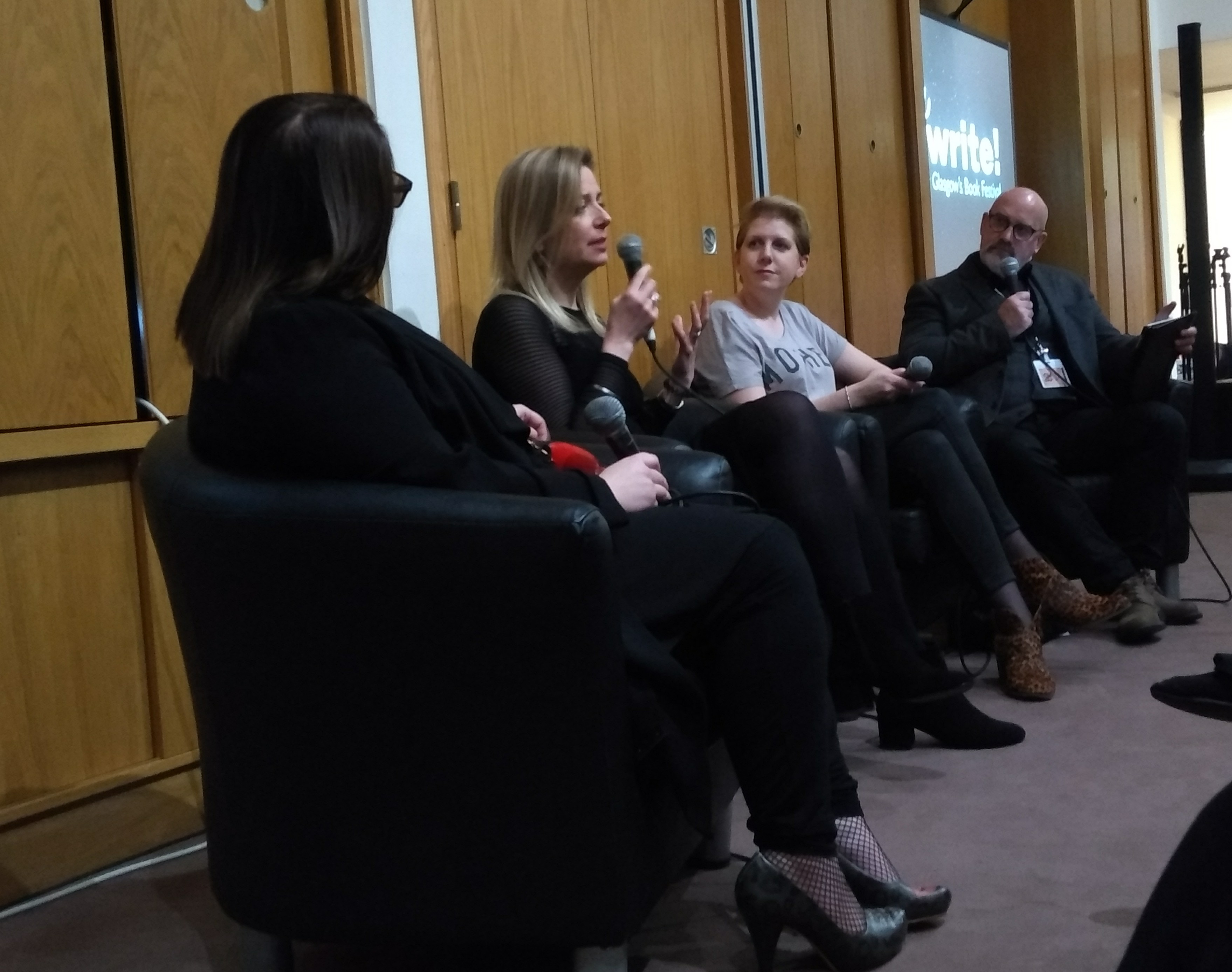After reviewing Bloody Scotland in Stirling and Newcastle Noir in 2023, where I had a wonderful time, I was excited to add another crime writing festival to my list: Granite Noir in Aberdeen, which has been around since 2017.
While I missed a few big names, such as David Suchet and Sophie Hannah, earlier in the week, a long weekend in the Granite city gave me enough time to really immerse myself into the many fun festival happenings. Aberdeen might be located in the north east of the country, but I was pleasantly surprised how many audience members had made their way to the events from all over the UK and even as far as Canada.

My festival Friday started at the Lemon Tree with authors Kate Simants, Lauren James and Oisín McGann discussing a hopeful approach to climate change writing and its impact on the world. Next were Catherine Kirwan from Cork and Ruth Mancini from London, who both juggle a successful legal career with one in crime writing. In the evening I headed over to the Music Hall for an incredibly entertaining panel with Denise Mina, Louise Welsh and Charles Cumming (pic above) whose latest books are set in fifteenth-century Florence, a Scottish university campus and the world of international espionage respectively.
Saturday was a busy festival day starting with an intriguing session with ‘bold new voices’ Adam Oyebanji, Briar Ripley Page and Maud Woolf. After a relaxed lunch with local friends I was back at the Lemon Tree for ‘Mysteries in Time Gone By’ with ES Thompson (1850s), Ajay Close (1970s) and Phil Miller (1990s). In the late afternoon it was time for an Icelandic Noir panel with Corylus Books authors Sólveig Pálsdóttir and Óskar Guðmundsson. It was great to see a translated fiction panel at the festival as it is clearly popular with readers plus there are several awards in the UK, such as the Crime Fiction in Translation Dagger Award and the Petrona Award.
I then headed over to the Music Hall for a fascinating session with Glasgow-based crime writer Alex Gray interviewing Marie Cassidy, former Irish state pathologist turned crime writer. One of my favourite events of the weekend was the thought-provoking ‘night-time noir’ panel at the Lemon Tree with Scottish BPOC writers network’s Amira Al Shanti, Katalina Watt, Zebib K. Abraham and Amanda Ajomale (pic below) speaking about their writing and interests, including speculative fiction, horror, mythology and folklore.

Way too soon it was the last festival day, but Sunday had another packed programme of events in store for us starting with ‘The Queen of Codes’, a biography of codebreaker extraordinaire and distinguished musicology translator Emily Anderson by Irish writer and historian Dr. Jackie Uí Chionna. Having seen Jean Kwok and Emma Christie at Newcastle Noir last December, it was wonderful to get another opportunity to have them on a panel together (pic below) and hear more about how their life stories inform their writing.
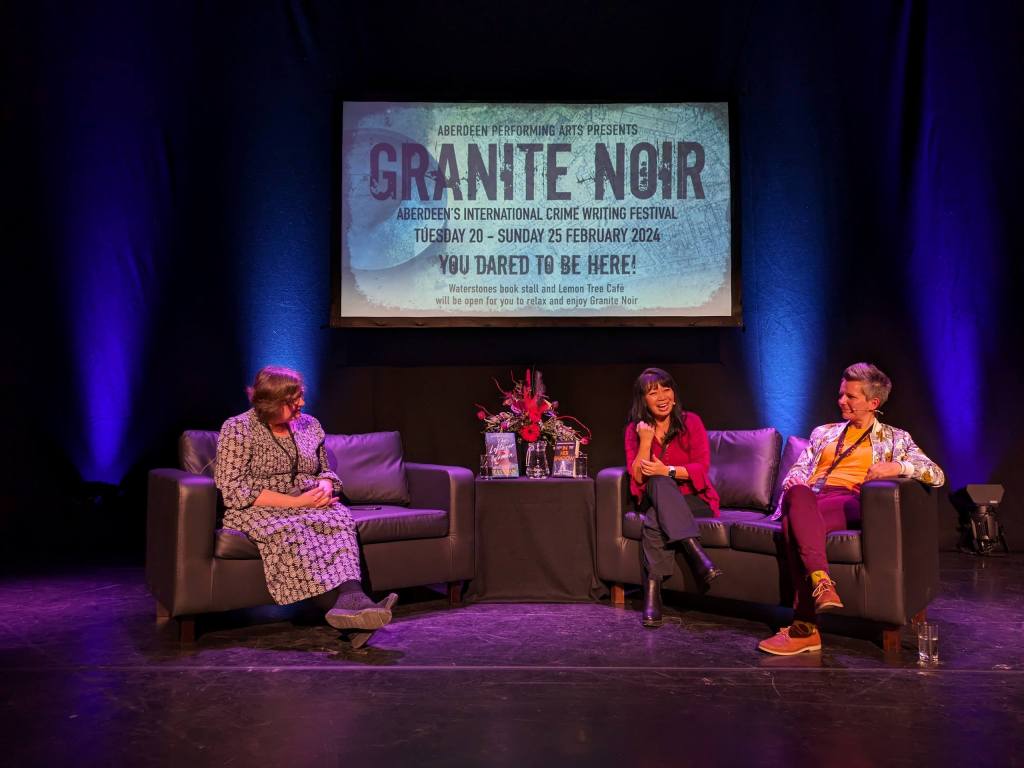
Another Sunday highlight, the award winners panel with Callum McSorley (McIllvanney Prize 2023), Sophie White (Shirley Jackson Award 2023) and DV Bishop (CWA Historical Dagger 2023), gave us an insight into what winning a prize means for the authors receiving it. The festival’s closing event with Lisa Jewell (pic below) had been moved to a larger venue, the Music Hall, due to exceptional demand and it was fantastic to see how popular writing events, and crime writing in particular, currently are in Scotland and the UK. All the festival venues I attended had friendly, dedicated staff and the Lemon Tree and the Music Hall had their own cafes, so it was easy to connect with other festival-goers.
While the festival provided plenty of food for thought and reading material for months to come, it would have been criminal (excuse the pun) to not also enjoy the fantastic February weather and venture out for a couple of walks to the beach and the Cruickshank Botanical Garden. They are both walking distance from the city centre and made for a welcome break from the bustling writing events.
In a world where things are going more and more digital, it is so heartening to see venues filled with lively crowds of book lovers and readers meeting their favourite authors, getting books signed and a chance to ask them questions in person. So if you need any excuse for a late winter weekend away, you certainly won’t regret travelling to Aberdeen. The silver city not only offers a host of museums, green spaces, a large beachfront and plenty of enticing restaurants and cafes to enjoy. It is also home to outstanding cultural events, such as Granite Noir, which is bound to go from strength to strength given the ever-increasing popularity of crime fiction in the UK and around the world.
Disclaimer: Life is a Festival was provided with review tickets for the festival events. Ⓒ Photography by Richard Frew Photography & Film (Louise Welsh panel, night-time noir panel, Lisa Jewell) and by Life is a Festival (food, Jean Kwok/Emma Christie, beach).





